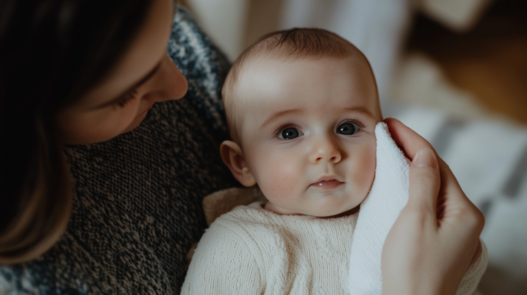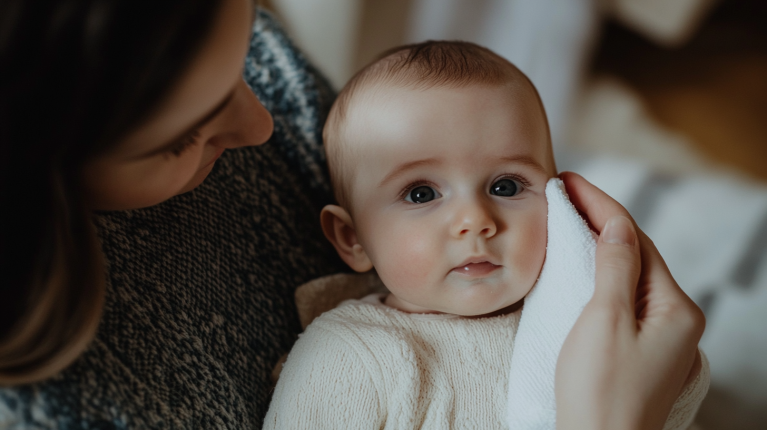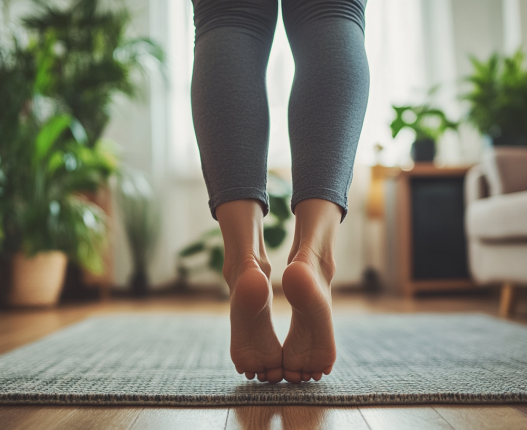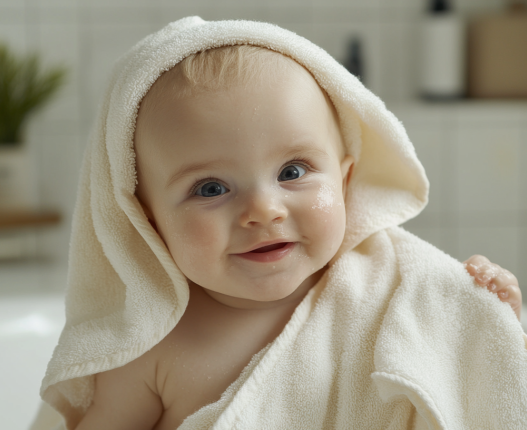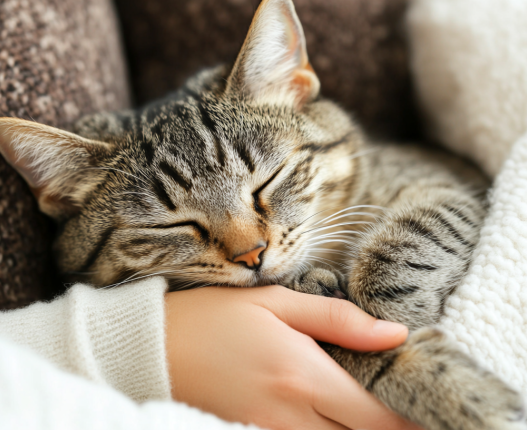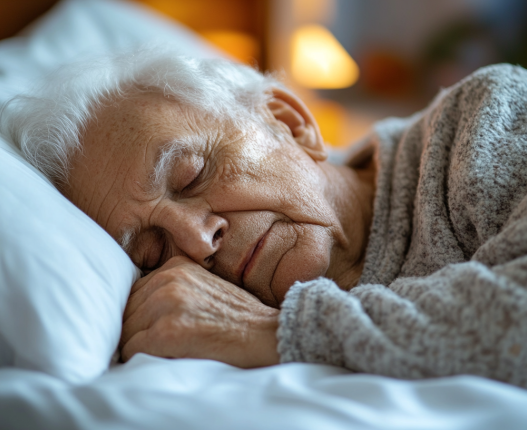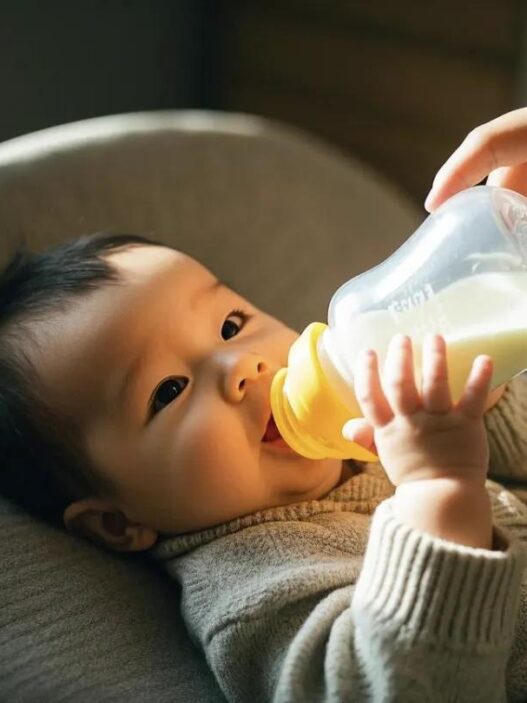Have you ever noticed that your baby is crying uncontrollably at night, and after a thorough check, you discover the problem is actually related to their ears?
Should you clean earwax from your baby’s ears?
Is it possible that improper cleaning could harm their hearing?
Don’t worry! In this article, we’ll clear up these common questions and guide you on how to safely clean your baby’s ears, ensuring both their ear health and a better night’s sleep—without falling into the earwax trap!
What is Earwax?
Your Baby’s Natural Ear Protection
Earwax, medically known as cerumen, is a combination of secretions from the ear’s sebaceous glands and particles such as dust and skin flakes. While it may seem like a “dirty substance,” earwax serves several important roles:
- Protective Barrier: Earwax helps block dust and bacteria from entering the ear canal, protecting your baby’s delicate ears.
- Natural Lubricant: It keeps the ear canal moist, preventing dryness and irritation.
- Self-Cleaning Mechanism: Normally, earwax is gradually pushed out of the ear canal by actions such as chewing or yawning, eliminating the need for special cleaning.
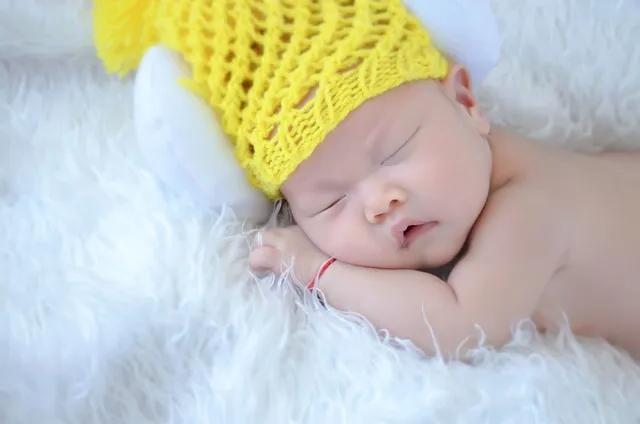
So, earwax isn’t the enemy—it’s a natural guardian of your baby’s ears!
Common Misconceptions: Things You Should Never Do!
Myth #1: “Earwax will build up into ‘ear stones’ if left alone?”
Many parents fear earwax will build up if not cleaned out, but that’s generally not the case. In most instances, earwax will naturally shed or fall out.
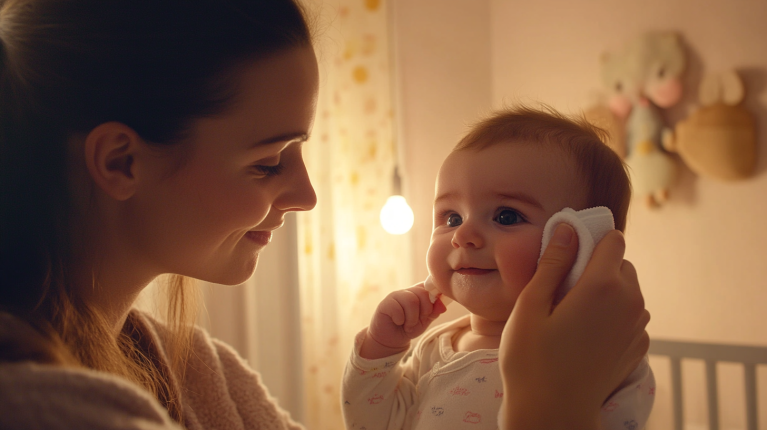
Myth #2: “Cotton swabs are the best way to clean earwax?”
This is a big mistake!
Using cotton swabs can push the earwax deeper into the ear canal, or worse, cause damage to your baby’s ear. Babies’ ear canals are shorter and narrower, and improper use of cotton swabs may even result in a perforated eardrum.
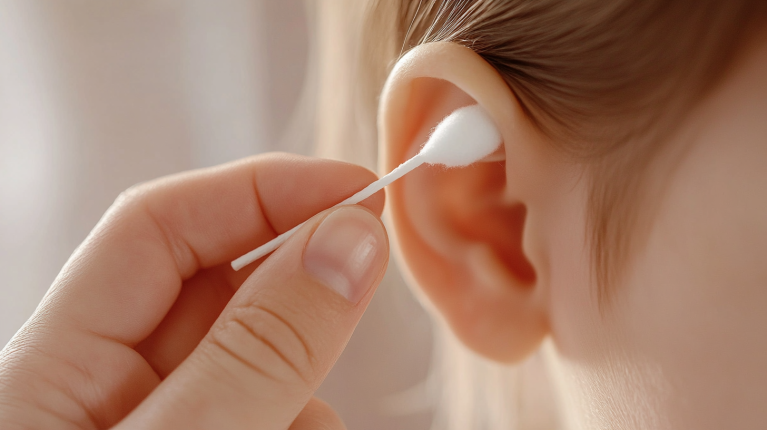
Myth #3: “Lots of earwax means ear infection?”
The amount of earwax varies from baby to baby, and more earwax is not necessarily a sign of infection. If the earwax becomes yellow-green, has a foul smell, or if there is fluid drainage from the ear, it could indicate an ear infection such as otitis media, and you should seek medical attention immediately.
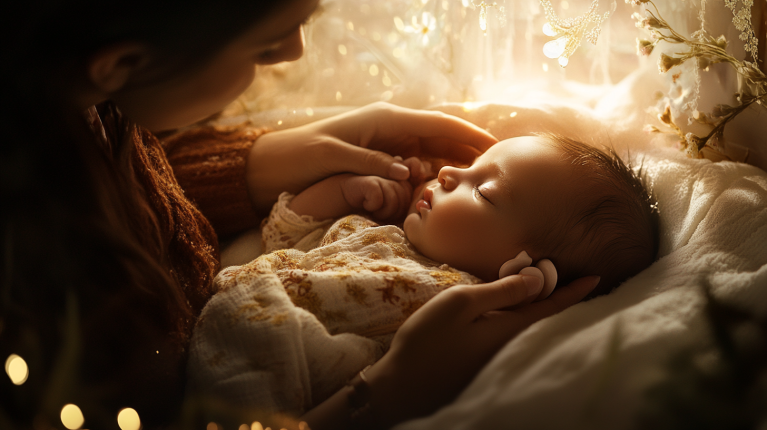
The Right Way to Clean Your Baby’s Ears
1. Clean the Outside Only
The main principle is simple: only clean the outer parts of the ear, not the inside.
- Tools: Use a soft, damp cloth or a baby-safe wet wipe to gently wipe the outer ear. Avoid inserting anything into the ear canal.
- Frequency: Clean the outside of your baby’s ears 1-2 times per week. Excessive cleaning can disrupt the natural ear barrier and potentially cause irritation.
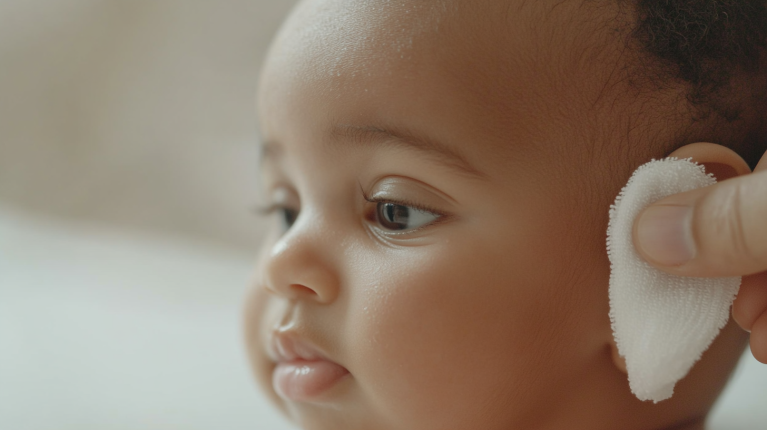
2. Avoid Deep Cleaning
Do not use cotton swabs, hairpins, or your fingernails to reach into your baby’s ear canal.
If earwax has built up and is blocking the ear canal, consult a pediatrician or an ear, nose, and throat (ENT) specialist to handle the situation. Don’t attempt to clean it yourself.
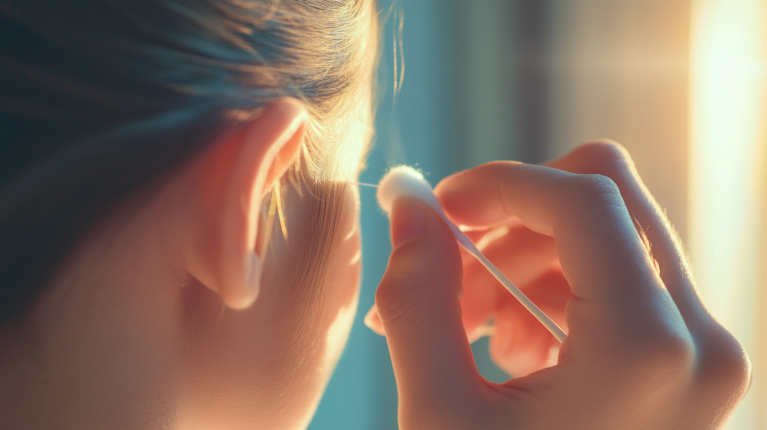
3. Is Using Oil to Soften Earwax Safe?
Some people suggest using olive oil to soften earwax, but you should approach this method with caution.
If the ear canal is healthy, a few drops of gentle baby ear care liquid may help. However, if your baby has an ear infection or a perforated eardrum, this could worsen the situation.
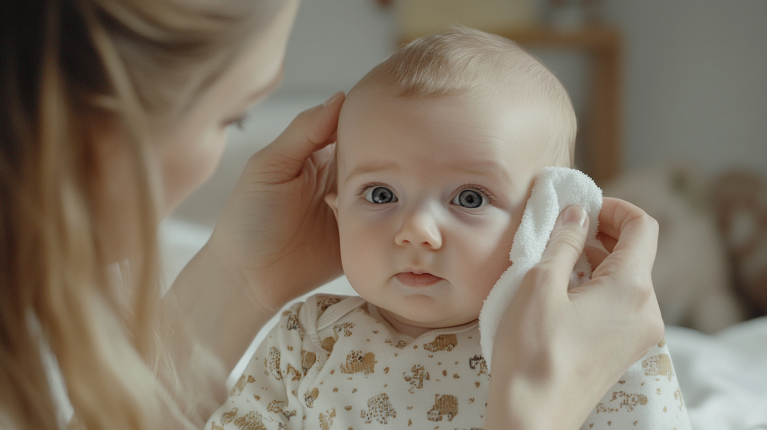
Can Ear Health Affect Your Baby’s Sleep?
Ear discomfort is one of the common causes of nighttime crying in babies. Specifically, look out for the following:
- Earwax Blockage: If earwax blocks the ear canal, your baby may tug at their ears, become irritable, or cry more than usual.
- Middle Ear Infections: If earwax is accompanied by fever or fluid drainage, it could signal an ear infection, requiring immediate medical attention.
- Ear Eczema: Improper cleaning or eczema affecting the ear area could cause your baby significant discomfort.
Solution: Keep the ear area dry and clean. When bathing, avoid water entering the ear canal. If you suspect an ear infection, seek medical help promptly.
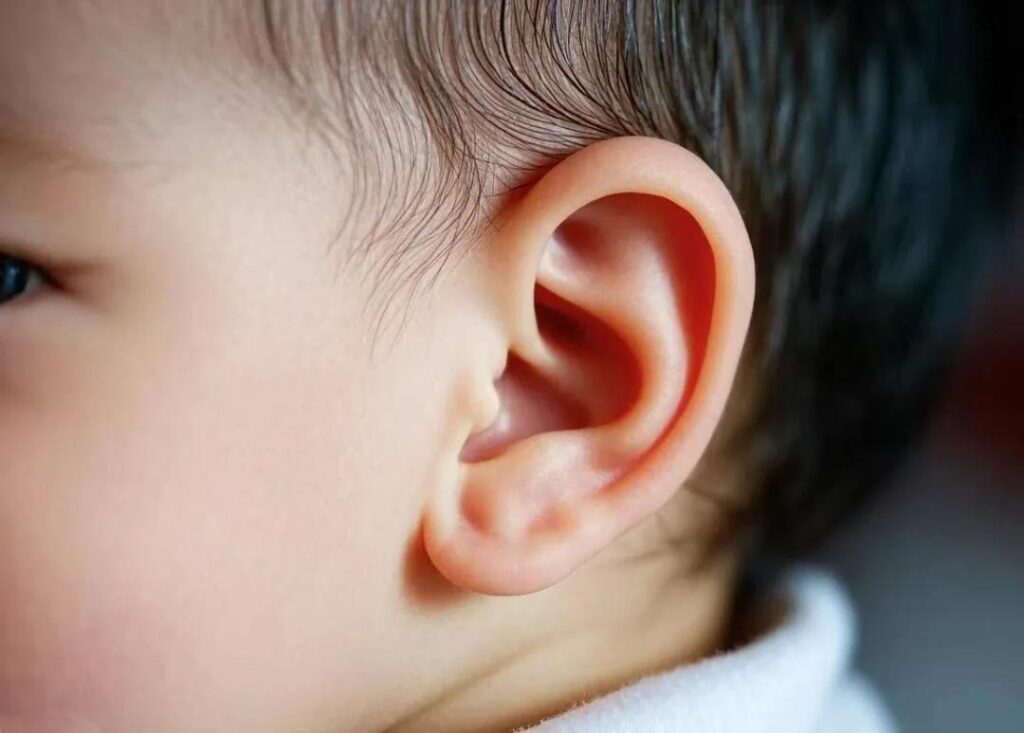
The Golden Rules for Healthy Ears
To ensure your baby’s ears develop healthily, remember these essential points:
- Less Cleaning, More Observation: Don’t feel the need to clean your baby’s ears often. Simply check the outer ear for any signs of irritation or infection.
- Avoid Cotton Swabs: Keep cotton swabs and other dangerous tools away from your baby’s ears to protect their eardrums.
- Prevent Water from Entering Ears During Bathing: Use baby earplugs during bath time to keep water out of the ear canal.
- Seek Medical Help for Suspected Issues: If earwax builds up or you suspect an infection, always consult a healthcare professional rather than trying to fix it yourself.
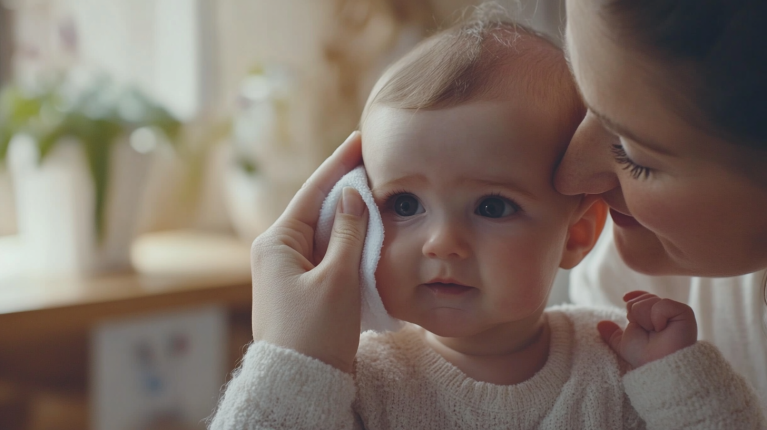
Conclusion
Your baby’s ears may be small, but they’re incredibly important!
Ear cleaning is not a trivial matter, and with the right techniques, you can prevent discomfort and reduce the chances of nighttime crying. By avoiding common cleaning mistakes and following these tips, you’ll keep your baby’s ears healthy—and enjoy fewer sleepless nights!







